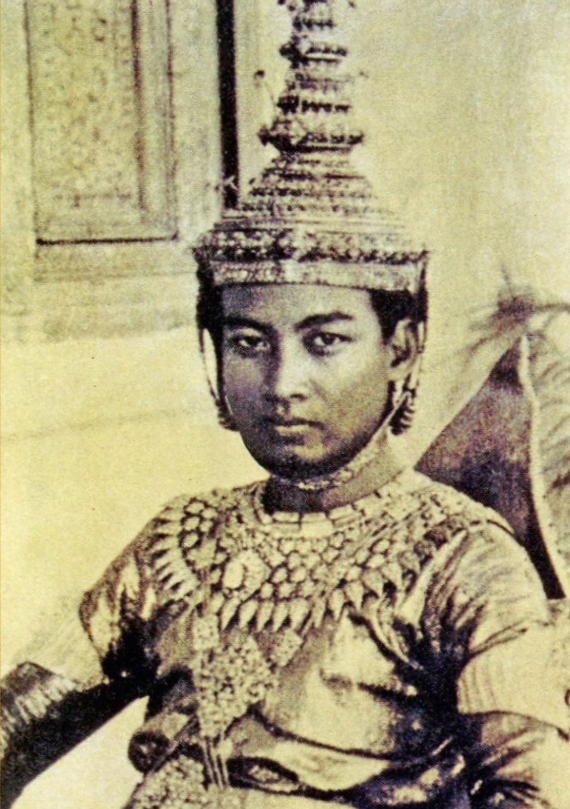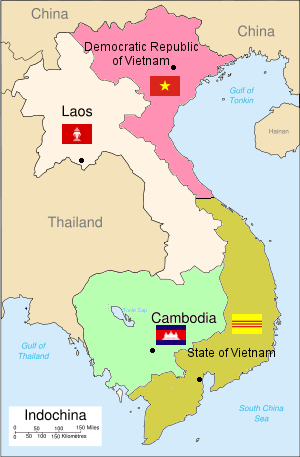|
1955 Cambodian Geneva Conference Referendum ...
A referendum on the initiatives of King Norodom Sihanouk at the Geneva Conference was held in Cambodia on 7 February 1955. It was approved by 99.8% of voters.Dieter Nohlen, Florian Grotz & Christof Hartmann (2001) ''Elections in Asia: A data handbook, Volume II'', p68 Results References {{Cambodian elections Referendums in Cambodia Geneva Conference referendum Cambodia Cambodia (; also Kampuchea ; km, កម្ពុជា, UNGEGN: ), officially the Kingdom of Cambodia, is a country located in the southern portion of the Indochinese Peninsula in Southeast Asia, spanning an area of , bordered by Thailand t ... [...More Info...] [...Related Items...] OR: [Wikipedia] [Google] [Baidu] |
Norodom Sihanouk
Norodom Sihanouk (; km, នរោត្តម សីហនុ, ; 31 October 192215 October 2012) was a Cambodian statesman, Sangkum and FUNCINPEC politician, Norodom Sihanouk filmography, film director, and composer who led Cambodia in various capacities throughout his long career, most often as both Monarchy of Cambodia, King and Prime Minister of Cambodia. In Cambodia, he is known as Samdech Euv ( km, សម្តេចឪ, link=no, ; meaning "King Father"). During his lifetime, Cambodia was under various regimes, from French protectorate of Cambodia, French colonial rule (until 1953), Cambodia (1953–1970), an independent kingdom (1953–1970), Khmer Republic, a republic (1970–1975), Democratic Kampuchea, the Khmer Rouge regime (1975–1979), People's Republic of Kampuchea, another communist regime (1979–1989), State of Cambodia (1989–1993), a state (1989–1993) to finally Kingdom of Cambodia, another kingdom (since 1993). Sihanouk was the only child of Prince No ... [...More Info...] [...Related Items...] OR: [Wikipedia] [Google] [Baidu] |
1954 Geneva Conference
The Geneva Conference, intended to settle outstanding issues resulting from the Korean War and the First Indochina War, was a conference involving several nations that took place in Geneva, Switzerland, from 26 April to 20 July 1954. The part of the conference on the Korean question ended without adopting any declarations or proposals, so is generally considered less relevant. The Geneva Accords that dealt with the dismantling of French Indochina proved to have long-lasting repercussions, however. The crumbling of the French colonial empire in Southeast Asia led to the formation of the states of the Democratic Republic of Vietnam (North Vietnam), the State of Vietnam (the future Republic of Vietnam, South Vietnam), the Kingdom of Cambodia and the Kingdom of Laos. Diplomats from South Korea, North Korea, the People's Republic of China (PRC), the Union of Soviet Socialist Republics (USSR) and the United States of America (US) dealt with the Korean side of the Conference. For th ... [...More Info...] [...Related Items...] OR: [Wikipedia] [Google] [Baidu] |
Cambodia
Cambodia (; also Kampuchea ; km, កម្ពុជា, UNGEGN: ), officially the Kingdom of Cambodia, is a country located in the southern portion of the Indochinese Peninsula in Southeast Asia, spanning an area of , bordered by Thailand to the northwest, Laos to the north, Vietnam to the east, and the Gulf of Thailand to the southwest. The capital and largest city is Phnom Penh. The sovereign state of Cambodia has a population of over 17 million. Buddhism is enshrined in the constitution as the official state religion, and is practised by more than 97% of the population. Cambodia's minority groups include Vietnamese, Chinese, Chams and 30 hill tribes. Cambodia has a tropical monsoon climate of two seasons, and the country is made up of a central floodplain around the Tonlé Sap lake and Mekong Delta, surrounded by mountainous regions. The capital and largest city is Phnom Penh, the political, economic and cultural centre of Cambodia. The kingdom is an elective co ... [...More Info...] [...Related Items...] OR: [Wikipedia] [Google] [Baidu] |
Dieter Nohlen
Dieter Nohlen (born 6 November 1939) is a German academic and political scientist. He currently holds the position of Emeritus Professor of Political Science in the Faculty of Economic and Social Sciences of the University of Heidelberg. An expert on electoral system An electoral system or voting system is a set of rules that determine how elections and referendums are conducted and how their results are determined. Electoral systems are used in politics to elect governments, while non-political elections ma ...s and political development, he has published several books. IDEA Bibliography Books published by Nohlen include: *''Electoral systems of the world'' (in German, 1978) *''Lexicon of politics'' (seven volumes) *''Elections and Electoral Systems'' (1996) *''Electi ...[...More Info...] [...Related Items...] OR: [Wikipedia] [Google] [Baidu] |
Referendums In Cambodia
A referendum (plural: referendums or less commonly referenda) is a direct vote by the electorate on a proposal, law, or political issue. This is in contrast to an issue being voted on by a representative. This may result in the adoption of a new policy or specific law, or the referendum may be only advisory. In some countries, it is synonymous with or commonly known by other names including plebiscite, votation, popular consultation, ballot question, ballot measure, or proposition. Some definitions of 'plebiscite' suggest it is a type of vote to change the constitution or government of a country. The word, 'referendum' is often a catchall, used for both legislative referrals and initiatives. Etymology 'Referendum' is the gerundive form of the Latin verb , literally "to carry back" (from the verb , "to bear, bring, carry" plus the inseparable prefix , here meaning "back"Marchant & Charles, Cassell's Latin Dictionary, 1928, p. 469.). As a gerundive is an adjective,A gerund ... [...More Info...] [...Related Items...] OR: [Wikipedia] [Google] [Baidu] |
1955 In Cambodia
Events January * January 3 – José Ramón Guizado becomes president of Panama. * January 17 – , the first nuclear-powered submarine, puts to sea for the first time, from Groton, Connecticut. * January 18– 20 – Battle of Yijiangshan Islands: The Chinese Communist People's Liberation Army seizes the islands from the Republic of China (Taiwan). * January 22 – In the United States, The Pentagon announces a plan to develop intercontinental ballistic missiles (ICBMs), armed with nuclear weapons. * January 23 – The Sutton Coldfield rail crash kills 17, near Birmingham, England. * January 25 – The Presidium of the Supreme Soviet of the Soviet Union announces the end of the war between the USSR and Germany, which began during World War II in 1941. * January 28 – The United States Congress authorizes President Dwight D. Eisenhower to use force to protect Formosa from the People's Republic of China. February * February 10 – The United States Seventh Fleet helps t ... [...More Info...] [...Related Items...] OR: [Wikipedia] [Google] [Baidu] |



